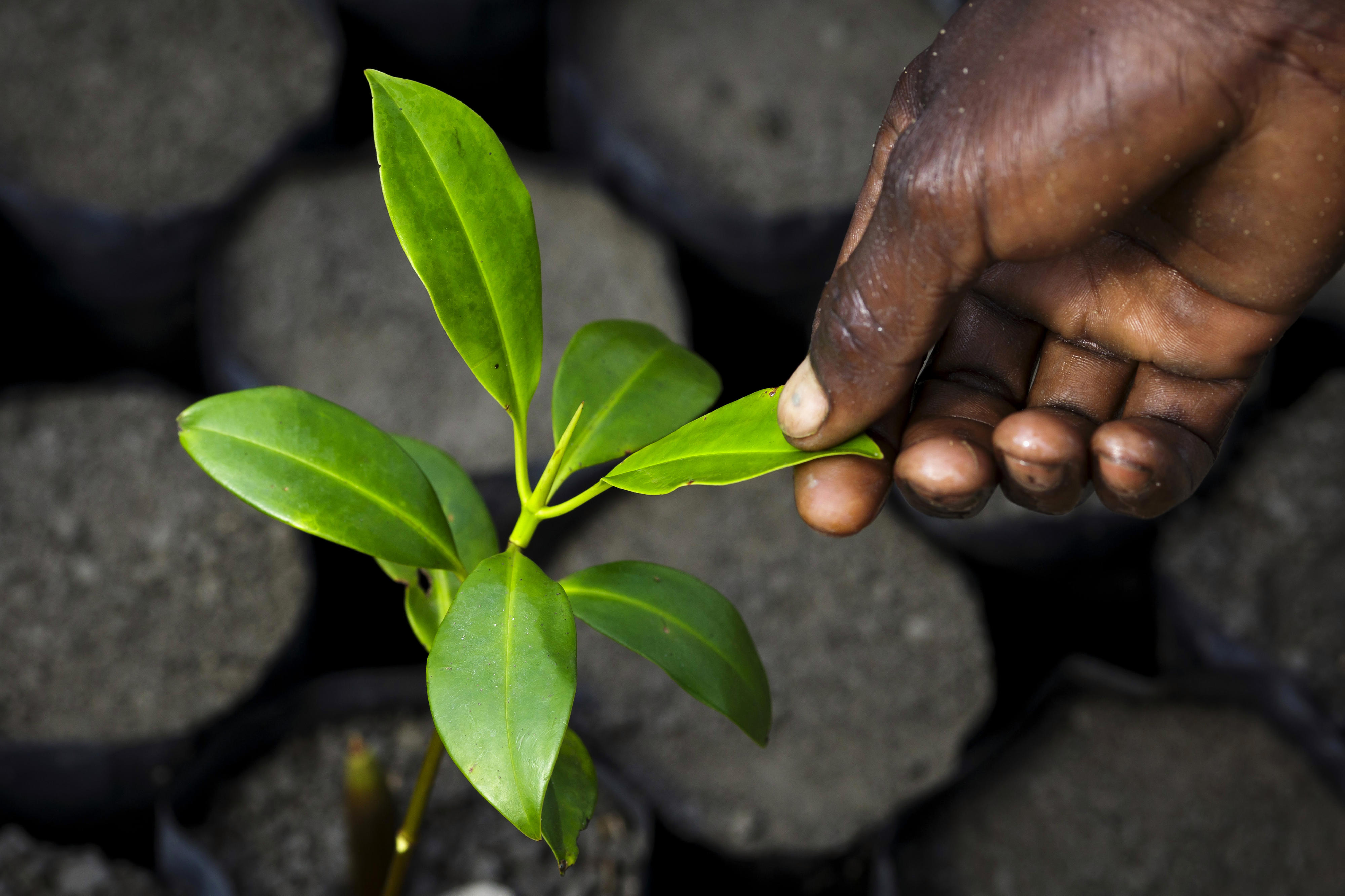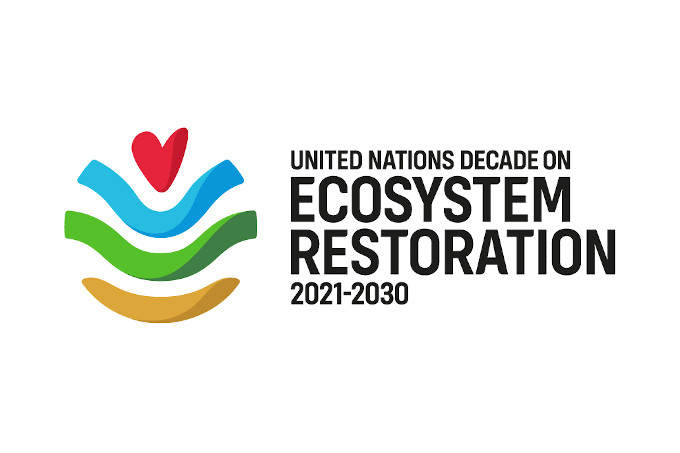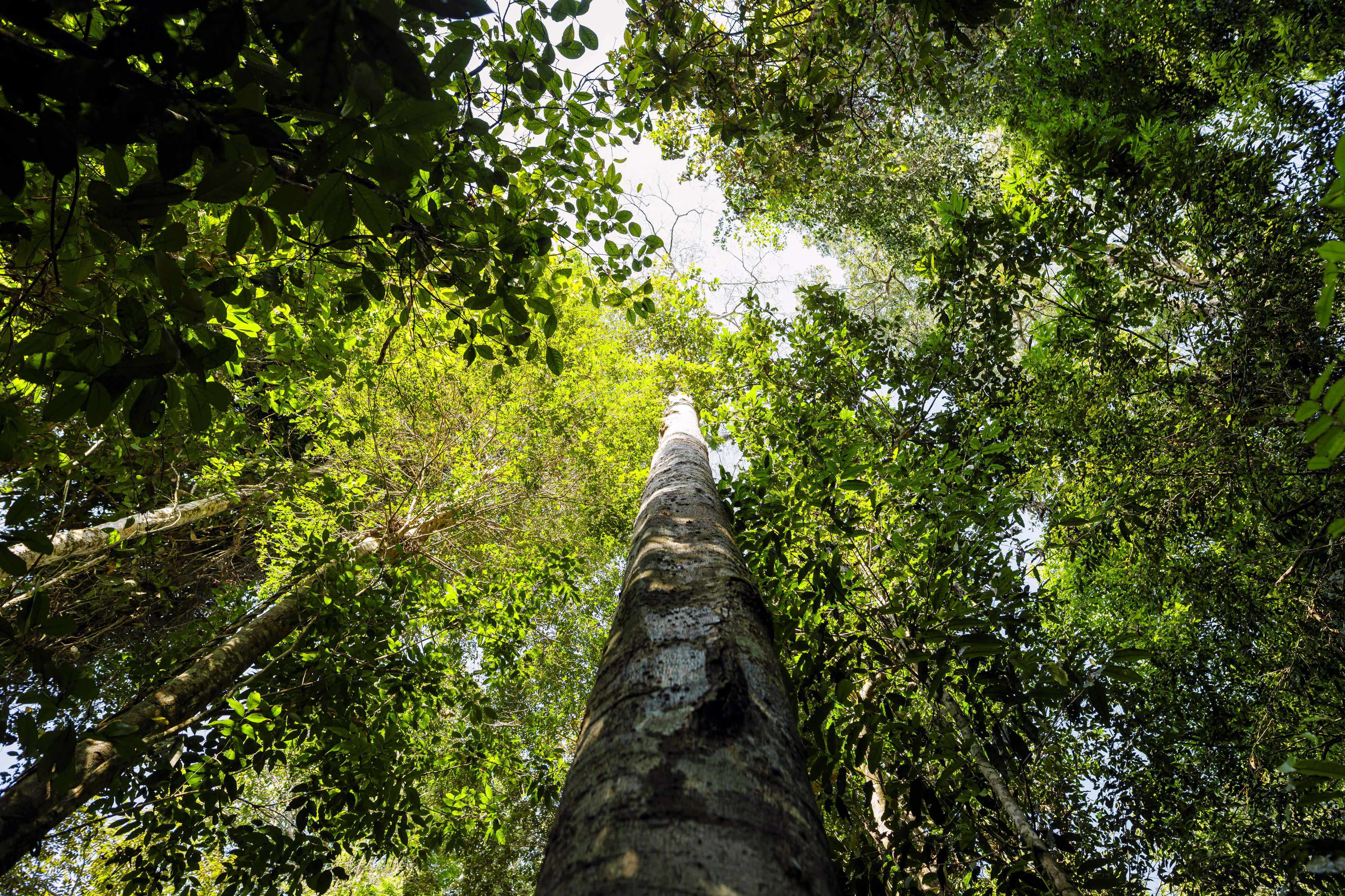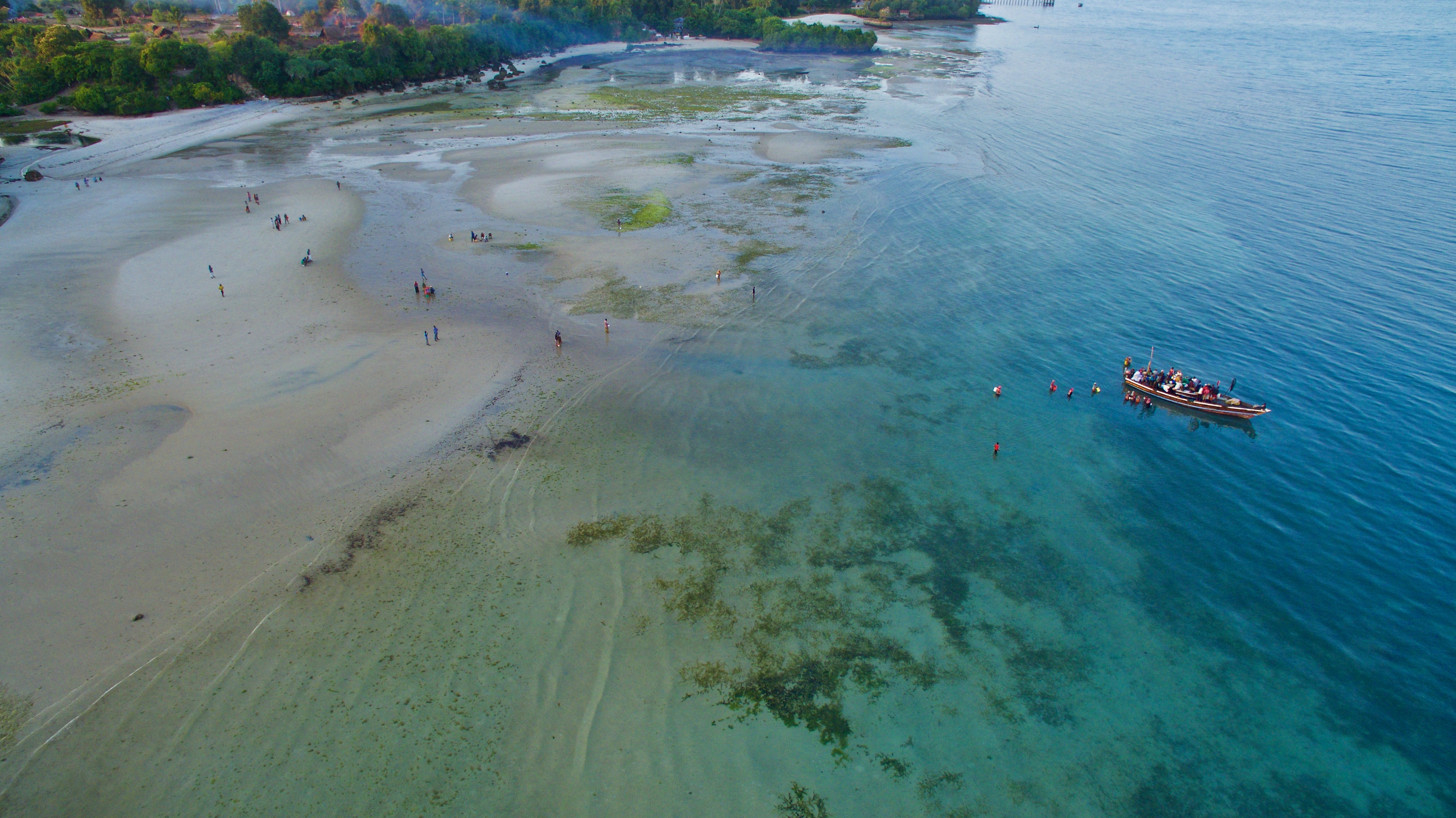Gardener in a mangrove tree nursery. The trees are planted as erosion protection in the event of flooding.
Copyright© Thomas Trutschel/photothek.net
Ecosystem restoration Restoring ecosystems, fostering sustainable development
The impacts of the loss of natural resources are devastating. Species loss, desertification, water scarcity and increased climate change are just a few examples of these impacts. It is all the more important to protect the Earth's remaining vital natural resources effectively, use them sustainably and restore them where necessary.
Ecosystem restoration includes, for example, targeted reforestation measures, peatland rewetting, and the restoration of mangroves, watercourses, and soil fertility. Many of these activities also contribute significantly to climate change mitigation and adaptation. At the same time, it is vital to eliminate the structural causes of ecosystem degradation.
The restoration of ecosystems can only be successful if local communities are involved. Protecting their land rights and land use rights is essential in order to stop global biodiversity loss and successfully implement ecosystem restoration projects.
UN Decade on Ecosystem Restoration
The international community has recognised the importance of this issue. The United Nations made 2021 to 2030 the UN Decade on Ecosystem Restoration. This approach is based on the assumption that the global Sustainable Development Goals of the 2030 Agenda can only be reached if global ecosystem degradation is halted, ecosystems are conserved and efforts are undertaken to restore them where necessary. In the Global Biodiversity Framework, the parties to the Convention on Biological Diversity adopted the goal of restoring 30 per cent of all degraded ecosystems by 2030.
Germany supports the UN Decade and was the first country to contribute to the Decade's trust fund, making available 14 million euros. As part of its bilateral cooperation, the BMZ is involved in numerous projects for ecosystem restoration all over the world. For example, it is supporting the restoration of at least 129 million hectares of forest landscape in Africa, the protection and restoration of peri-urban coastal ecosystems in Mexico, and the restoration and sustainable use of mangrove forests in the western Indian Ocean.
As at: 31/07/2024







